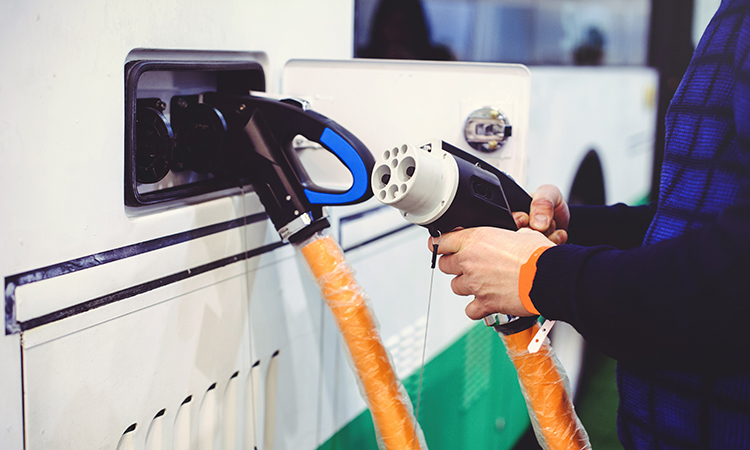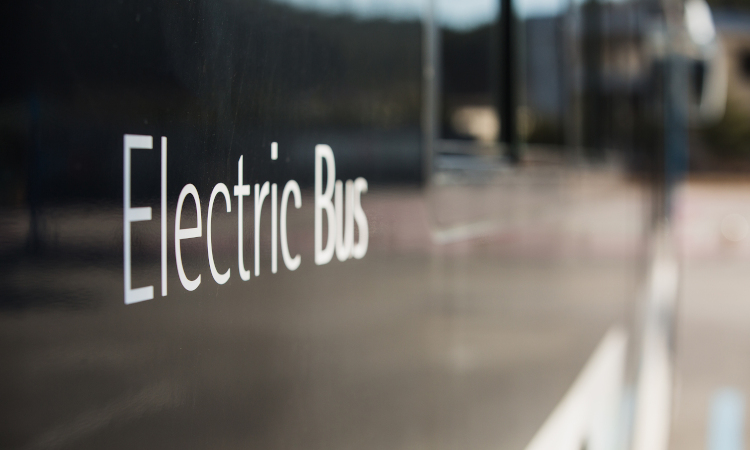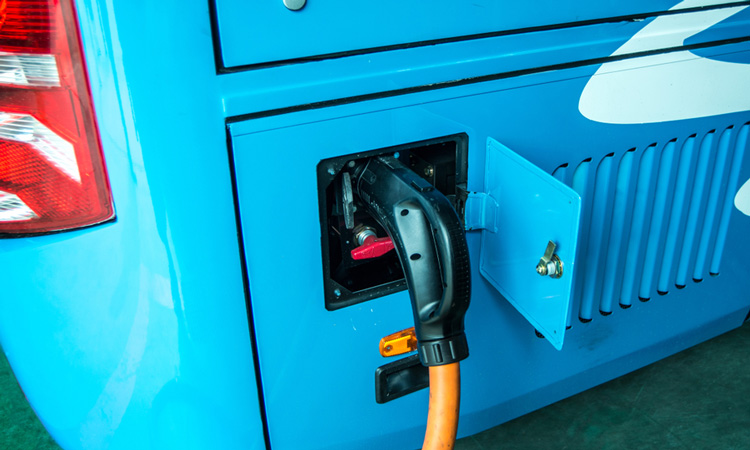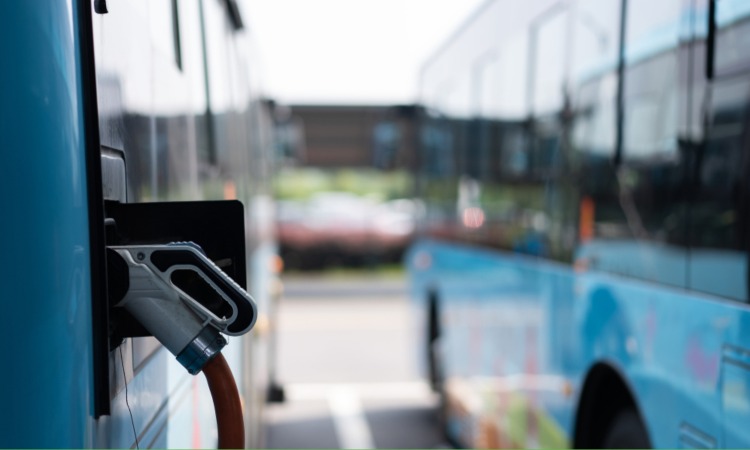ASSURED: Making standardised electric bus charging a reality in Europe
- Like
- Digg
- Del
- Tumblr
- VKontakte
- Buffer
- Love This
- Odnoklassniki
- Meneame
- Blogger
- Amazon
- Yahoo Mail
- Gmail
- AOL
- Newsvine
- HackerNews
- Evernote
- MySpace
- Mail.ru
- Viadeo
- Line
- Comments
- Yummly
- SMS
- Viber
- Telegram
- Subscribe
- Skype
- Facebook Messenger
- Kakao
- LiveJournal
- Yammer
- Edgar
- Fintel
- Mix
- Instapaper
- Copy Link
Posted: 3 May 2022 | Aida Abdulah -UITP, Maitane Berecibar - VUB, Omar Hegazy - VUB | 1 comment
Intelligent Transport’s Leah Hockley sat down with Maitane Berecibar, Omar Hegazy and Aida Abdulah of the ASSURED project to find out more about how the project has worked to overcome the barriers for mass-scale bus electrification, as well as deployment, and delivered key innovations that enable the optimisation of fleet operations.


Electrification of public transport is one of the main answers to cities’ ever-pressing challenges of poor air quality and traffic congestion. Clean vehicles are quickly transforming the way that public transport is operated in our cities, and many (European Union (EU)) initiatives are working towards creating the sustainable cities that we envision in our future.
Clean vehicles are quickly transforming the way that public transport is operated in our cities“
One of the core EU-initiatives working towards this future was the ASSURED project, which developed and tested innovative solutions to support the standardisation and interoperability of electric vehicles (EVs) charging. Both are key for large-scale electrification: they enable operators to mix and match different brands of vehicles and chargers, which makes their integration into the public transport network more flexible and, therefore, cheaper.
ASSURED launched in 2017 with a 39-partner strong consortium uniting stakeholders from the entire transport and energy supply sectors“
ASSURED launched in 2017 with a 39-partner strong consortium uniting stakeholders from the entire transport and energy supply sectors: operators, authorities, manufacturers, academia and associations. A final conference was held on 21 March 2022, marking the end of a five-year long collaboration.
Intelligent Transport sat down with Maitane Berecibar and Omar Hegazy of project coordinator VUB, and Aida Abdulah from the International Association of Public Transport (UITP), who led the demo activities, to ask: how has ASSURED overcome the barriers for mass-scale electrification, as well as deployment, and how did the unique collaborative project spirit contribute to this?


ASSURED Interoperability Reference
With a strong focus on electric buses, ASSURED has delivered key innovations that enable the optimisation of fleet operation: alongside interoperability and standardisation of e-bus charging through high power fast charging solutions, the project investigated intelligent tools for smart charging and energy storage systems.
Alongside interoperability and standardisation of e-bus charging through high power fast charging solutions, the project investigated intelligent tools for smart charging and energy storage systems”
“For the real mass uptake of e-vehicles, different vehicles must have the capacity to be charged at any charging unit, irrespective of brand,” states Omar Hegazy of ASSURED Project Coordinator, VUB. “But effective interoperability requires standardised charging infrastructure. In short, this is what ASSURED did: we supported the work of standardisation bodies worldwide.”
One major outcome providing this support is the ‘ASSURED 1.0 Interoperability Reference’, a document aiming to enable e-bus interoperability and conformance testing of vehicles and chargers. “The Interoperability Reference was originally developed to meet project needs, but it can also be utilised in implementation by municipalities, public transport authorities (PTAs) and public transport operators (PTOs) or manufacturers,” continues Hegazy. “It means that they can test interoperability until standardisation as set by the EU is fully finalised.” The first document launched in 2019: an update, the ASSURED Interoperability Reference 1.11, was published in early 2022 following results from project demos held across Europe.


Additional elements explored within the project were how to improve grid stability to ensure a secure energy supply, essential for future uses when a larger number of vehicles will rely on the charging infrastructure”
Additional elements explored within the project were how to improve grid stability to ensure a secure energy supply, essential for future uses when a larger number of vehicles will rely on the charging infrastructure. VUB’s Maitane Berecibar complements this point of view with respect to the research actions that are being developed in the battery technology: “Batteries are becoming smart, digital and more sustainable, overcoming bottlenecks – such as increasing the energy density and decreasing and avoiding the degradation caused when fast charging – that we may encounter today.”
In addition, unique simulator and smart fleet management tools were developed to enhance the performance of fleet operation and to reduce the total cost of ownership (TCO), enabling high flexibility in scheduling of electric bus fleets and high energy savings of up to 45 per cent thanks to the developed eco-features: eco-driving, eco-comfort and eco-charging.
Testing project solutions across Europe
ASSURED solutions have first been tested in controlled conditions and later operated across Europe. “The Interoperability Reference was tested and successfully demonstrated in Barcelona and Osnabrück, to charge buses with chargers of different brands in real operation,” UITP’s Aida Abdulah explains. “The results of this were used to create the updated Reference.”
In the same spirit, the Gothenburg demonstration tested several interoperable charging solutions for different type of vehicles (e-bus, e-truck and e-car).
Another key milestone has been the development of smart tools for optimised fleet operation, charging and energy storage. “This innovation targeted the demo fleets in Eindhoven and Jaworzno,” Abdulah continues. “[In 2022], the Eindhoven fleet will be scaled up from 43 to 100 e-buses; thanks to the solutions developed, we can reduce energy demand and impact on the grid. The solutions tested in Jaworzno have achieved significant cost reductions and increased efficiency of the charging.”


Uniting a sector
The project is an outstanding example of how cooperation between the end users, industry, technology companies and academia can provide fruitful results that help to advance the sector and make a difference
According to Abdulah, a major contributor to ASSURED’s success was its collaborative spirit: “ASSURED has gathered around the table the most relevant players along the entire value chain, uniting different technologies and sometimes very different interests. In this sense, the project is an outstanding example of how cooperation between the end users, industry, technology companies and academia can provide fruitful results that help to advance the sector and make a difference.”
Still, the work to ensure cleaner and more sustainable cities does not end here. “We still need more efforts to ensure that citizens choose public transport and urban buses, because it is more convenient, comfortable and efficient than private cars.”
In this sense, the ASSURED legacy is ready to be transferred to other interesting applications, like e-BRT systems. What are the next steps and how we can continue innovating and developing solutions to advance the sector is about to be revealed.
One of the final outputs of the ASSURED project is the Clean Bus report, which provides an overview of the clean bus market in Europe. The report will be finalised in April 2022, so keep an eye out on the project website: www.assured-project.eu.
Authors
Prof. Dr. Maitane Berecibar is the Head of the Battery Innovation Center in the MOBI research group (VUB).
Prof. Dr. Ir Omar Hegazy is the Head of EPOWERS Research Group at ETEC Dept. & MOBI research group (VUB).
Aida Abdulah is the Senior Project Manager – Bus Unit, from the International Association of Public Transport (UITP).
References
Related topics
Air Quality, Alternative Power, Fleet Management & Maintenance, Public Transport, Sustainable Urban Transport
Related modes
Bus & Coach
Related cities
Barcelona, Eindhoven, Gothenburg, Jaworzno, Osnabruck
Related countries
Germany, Poland, Spain, Sweden, The Netherlands
Related organisations
International Association of Public Transport (UITP), VUB
Related people
Aida Abdulah, Maitane Berecibar, Omar Hegazy









The current trend of clean energy is EV. But, how this energy is produced at charging station? Are these energy a byproduct of burning fossil fuels else where?